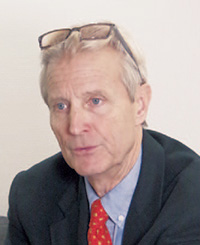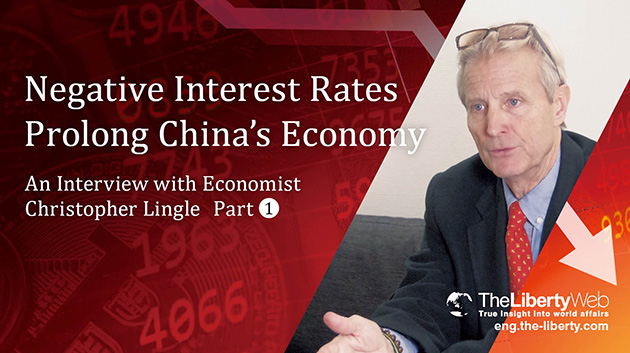Negative Interest Rates Prolong China’s Economy
Interview With Economist Christopher Lingle (Part 1)
Economist

Dr. Christopher Lingle
Born in Georgia, U.S.A. in 1948. Lingle earned a doctorate in economics from the University of Georgia in 1977. He is a fellow at the Centre for Civil Society, a think tank based in New Delhi. He guides liberal activists at Atlas Network. He is the author of Understanding China’s Socialist Market Economy among several other works.
—What do you think will happen with China’s economy in the future?
I think we’re potentially going to have a global recession starting with the downfall of China’s economy. I predicted in the 1990s that China would have the same experience that Japan did in 1989 with the collapse of the bubble economy.
China’s debt-to-GDP ratio is 300%. China’s economic stability despite its debt depends upon the monetary policy of the rest of the world, starting with Japan. Their government was trying to run budget deficits, and the central bank was supporting by driving interest rates down so the state could increase its borrowing. And it didn’t work. This has supported China because this liquidity that’s being created through negative interest rate policies have been allowing China more time for its imbalances and instabilities.
—Please tell us the problem with having a negative interest.
The development of monetary policy that put interest rates into negative territory is perhaps one of the worst policy decisions in humanity. It goes against human nature. It’s natural that you get more when you lend money. It goes against human nature to get less when you lend to people.
It also lacks coherence in terms of economics. What is the correct price of a bottle of water? The correct price is from supply and demand.
It’s the same for finding the correct interest rate. The interest rate is the single most importance price in any market economy. Central banks pretend to know what the correct interest rate is and play around with it.
We’re in a world right now where we’re captive of these bad models of economics, the Keynesian model. A bad model of economics brings bad results. The central banks will believe that raising interest rates caused the recession. No, it was the lowering of interest rates that created the conditions for a recession that’s going to happen.
The Chinese economy is on the verge of collapsing. When a soldier is shot, he doesn’t know he’s dead yet, but that he’s going to be dead. It’s the same with the recession. Look at the suffering that Japan went through during its bubble burst or Asia’s financial crisis in 1997. It’s very difficult to predict what will happen.



















